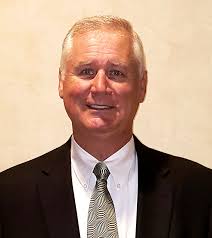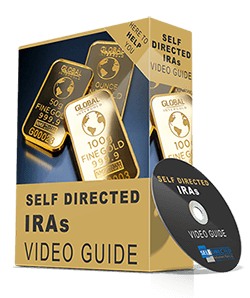Most of us build a retirement savings plan, but is this enough to live comfortably during the retirement? Balancing your retirement funds can be extremely difficult, given that your daily expenses rise as you age.
Just like it was mentioned in a recent Self Directed Retirement Plans’ blog post, for the majority of Americans, living past 85 years would be financially difficult. So, no matter if your retirement is still decades away or it’s approaching quickly, you need to plan and use your retirement fund strategically.
Here are a few tips that will help you do so.
Invest in the Right Retirement Plan on Time
Concerned about their student debt and bank loans, young people usually don’t think about their pension on time. According to the Bureau of Labor Statistics’ National Compensation Survey, only 15% of private-sector employees have a pension plan, while 44% of them have a retirement savings plan.
The perception of workplace retirement plans has also changed. The same report says that only half of employees in the private sector had a workplace retirement plan in 2017.
With the traditional pension benefits disappearing, your goal is to start saving up and preparing for your pension on time.
Start with a 401(k) plan.
The 401(k) plan that is financed through your contributions either via pre-tax or post-tax. The major benefit of this plan for employees is a high annual contribution limit that goes up to $19,000 for those under age 50 and $25,000 for people aged 50 and above.
Before you start contributing to 401 (k), always make sure your employer offers match programs. This means that a company contributes the additional sum of money to your account each time you make a contribution.
Open a Traditional IRA
If your employer doesn’t offer a company match, then skip 401 (k) and consider investing in IRAs, especially traditional ones.
Employees usually decide for traditional IRA plans, especially if they want to save money on taxes on their contributions. There are numerous significant benefits of traditional IRA plans
<ul
- Anyone can open and contribute to traditional IRAs – there are no income limits.
- It provides wide investment opportunities.
- Your investments are tax-deferred until you start withdrawing funds. A traditional IRA also allows you to deduct your contribution and save money on taxes upfront.
- You can invest in a traditional IRA even if you if already have a workplace pension plan, such as the above mentioned 401 (k).
- There is a limit to contribution amounts. In 2019, the traditional IRA contribution is up to $7,000 if you’re 50 or older
Additional IRAs to Consider
- Roth IRA – This plan requires paying taxes on contributions you make. Still, you will reap its benefits later, given that you won’t pay tax on withdrawals.
- Simplified Employee Pension (SEP) – designed for self-employed people and business owners.
- Self-Directed IRA provides numerous investment options for your retirement fund. These include residential real estate, commercial real estate, stocks, bonds, mutual funds, currency, etc.
- Savings Incentive Match Plan for Employees (SIMPLE) IRA is particularly important to small businesses. Workers can contribute a certain sum of money to their SIMPLE IRA funds and their dollars will grow at the determined interest rates.
How to Save Up and Use your Money Wisely after Retiring
When planning your retirement fund, you need to consider your current lifestyle and ask yourself if something is going to change once you retire. Knowing your lifestyle, you will be able to predict your expenses and determine whether they’re realistic when compared to your retirement income.
It’s also a good idea to plan your retirement pessimistically. Taking your worst-case scenario into account, you will be able to prioritize your expenses and make wiser decisions.
- Estimate your future medical costs. As you age, your medical expenses will also grow. That is exactly why you should consider creating a health savings account to cover your medical expenses, as well as invest in a comprehensive, long-term medical insurance.
- Know where you can save up. Seniors enjoy numerous benefits when it comes to payments. For example, when traveling, you can use seniors travel insurance that will cover most of your medical care costs, protect you against lost belongings, and even provide notable discounts or bonus days.
- Cut where it doesn’t hurt. Are you still paying for that family membership at the gold club no one uses? Or, if your home is expensive to maintain, why not downsize and rent an apartment in retirement?
- Focus you 401 (k) and IRAs on safer investments. Many seniors decide to invest in stocks just to find out that their returns are not satisfactory. Remember that age is not on your side, so choose investments that will generate regular income and keep your funds safe. According to The Economic Times, some of these options could be tax-free bonds and mutual funds.
- Know when and how to withdraw money from your retirement savings accounts. Just like I’ve mentioned above, when taking distributions from your traditional IRA account, you will need to pay a tax on withdrawals. Always make sure that you’re not withdrawing cash from an IRA at the same time you’re getting Social Security benefits. Otherwise, you will face high tax brackets.
Unsurprisingly, the sooner you start preparing yourself for retirement, the better off you will be. If you’re still a few decades away from retiring, this is a great opportunity to start investing in the right retirement plan and saving up. On the other hand, if you’re close to pension, then strategize your investments, choose the right insurance coverage, and minimize costs on multiple levels.
Guest Post – Keith Coppersmith is a business journalist with experience in numerous small businesses and startups. A regular contributor at Bizzmarkblog.com, he enjoys giving advice on both marketing and financial strategies.

Rick Pendykoski is the owner of Self Directed Retirement Plans LLC, a retirement planning company based in Goodyear, AZ. He has over three decades of experience working with investments and retirement planning, and over the last ten years has turned his focus to self-directed ira accounts and alternative investments. If you need help and guidance with traditional or alternative investments, call him today (866) 639-0066.




